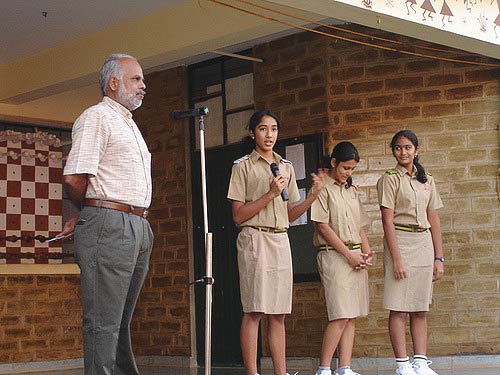
For the country’s 320,000 privately promoted schools, the religious or linguistic minority tag confers several advantages. Minority schools enjoy a higher level of administrative freedom, compared to non-minority institutions. Among them, exemption from s.12 (1) (c) of the Right of Children to Free and Compulsory Education (RTE) Act, 2009, which mandates that all private schools reserve 25 percent of capacity in class I for children from poor neighbourhood households every year and retain them free of charge until completion of class VIII, is the greatest advantage.
Inevitably, this provision of the RTE Act was challenged in the Supreme Court as being violative of the fundamental right of citizens to conduct a business, trade, profession or occupation without government interference (Article 19(1)(g). However, by a 2-1 majority in Society for Unaided Private Schools of Rajasthan vs. Union of India (2012), the apex court upheld the constitutional validity of s.12 (1) (c), but exempted boarding and minority schools as Article 30 (1) confers a fundamental right on minorities “to establish and administer educational institutions of their choice”.
After the verdict of the Supreme Court, a large number of school trusts, societies and promoters declined to admit poor children on the ground that they are minority institutions. Under several preceding judgements of the apex court, minorities have been defined as religious or linguistic. Under s. 12 (2) of the RTE Act, the State (i.e state and local governments) is obliged to compensate private schools admitting poor neighbourhood children, but only to the extent of the per child expenditure incurred in government schools, which is way below the tuition fees levied by most private schools. Hence, a flood of private schools in Karnataka claimed exemption from s. 12 (1) (c) on the ground that the promoters are of religious and/or linguistic minorities.
In Karnataka (pop. 68 million), 2,121 private schools, including 982 unaided schools, have claimed minority status. They include top-ranked day schools such as Bishop Cotton Boys/Girls School, Frank Anthony Public School, Clarence High School and Bethany High, which are clearly exempt from s.12 (1) (c) because they were promoted and/or managed by religious minorities. Moreover hundreds of other schools including Vidyaniketan School, National Public Schools and GEAR Innovative International School have appllied for linguistic minority status.
For the past six years, the education ministry of the state government has been insisting that two-thirds of the governing board members and 25 percent of enrolled students have to be from a religious or linguistic minority community for the school to be classified as a minority institution exempt from s.12 (1) (c).
However, this arbitrary interpretation of the Supreme Court’s judgement in the Association of Unaided Schools of Rajasthan Case has been contested by private school managements and to date there is no clarity on the appropriate authority to issue minority certification. While private schools affiliated with the Karnataka Secondary Education Examination Board are obliged to apply to the Directorate of Urdu and other Minority Languages Education functioning under the ambit of Department of Public Instruction, CBSE and CISCE-affiliated schools are directed to apply for minority status to the Delhi-based National Commission for Minority Educational Institution (NCMEI), established under the National Commission for Minority Educational Institutions Act, 2004. However, the NCMEI Act acknowledges only six religious minorities and includes no reference to linguistic minorities.
Consequently, notoriously corrupt “appropriate authorities” appointed by the state government’s education ministry have been raking it in by issuing exemption certificates to selected schools and false income certificates to “poor” neighbourhood households to facilitate free-of-charge admission of their children into posh primary schools. With words such as ‘minority’, ‘poor’, and ‘neighbourhood’ ill-defined or not defined at all under the rules prescribed by the state government, s.12 (1) (c) admissions are clouded in confusion and litigation and reserved quotas in upscale private schools are in danger of being hogged by unscrupulous relatively rich households.
“We have been running from pillar to post inside the state government for the past five years as our trustees are of the Tamil-speaking linguistic minority. After the November 5 order having defined linguistic minorities, we hope that the high court will soon pass a judgement directing NCMEI to issue an exemption certificate to us. We’re glad the case is coming to an end,” says Dr. M. Srinivasan, founder-principal of the CBSE-affiliated GEAR Innovative International School, who obtained a stay order from the high court in 2014.
However, it is pertinent to note that the November 5 order specifies only ten languages as acceptable for conferment of minority status whereas there are 20 major and 1,652 recognised languages in India. Therefore, it’s only a matter of time before the ill-conceived November 5 order is challenged.
Sruthy Susan Ullas (Bangalore)